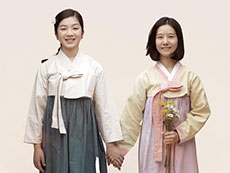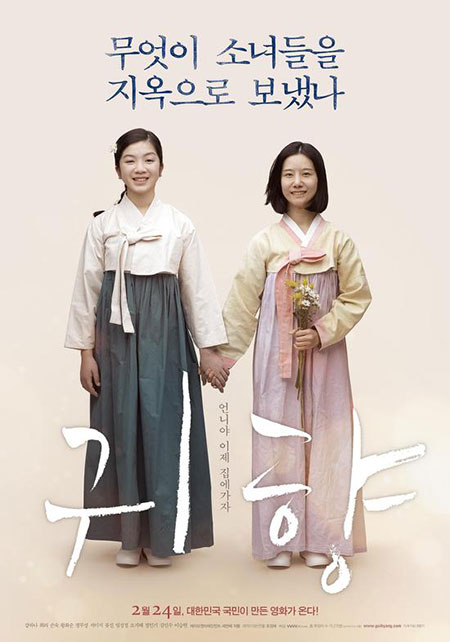Korean film about World War II sex slavery

 0 Comment(s)
0 Comment(s) Print
Print E-mail CNTV, March 4, 2016
E-mail CNTV, March 4, 2016
When a child donates his life savings to fund a film, and a congressman weeps to watch it, there must be something very special going on. Well, the number-one film in South Korea right now deals with sex slavery conducted by Japanese occupying forces during World War Two. Individual donations, from more than 75,000 people, financed the project.
 |
Based on the true story of Kang Il-chul, who was taken to a Japanese military brothel in China at the age of 16. "Spirits' Homecoming" was initially turned down by investors when they read a synopsis. They said it was pointless and not commercial enough.
But, after a teaser was released in 2014, more than 75-thousand donated funds online, making up around half the production costs.
U-Jean Jung: "What was very interesting about the movie, is at the very end, when the ending credits scroll up, you see lots of names of people who've sponsored the movie. And from what I understand, these are just ordinary people, not just big-shot movie producers or production companies. So can you tell me what kind of people helped sponsor this film? Who are they?"
Cho Jung'lae: "They are just ordinary normal citizens. Surprisingly, very young elementary students collected money. One child donated $400 and said it's his lifetime savings. And there was an entire class that sent a letter and painting together with their donations. And there were also elderly people in their 70s and 80s. So sponsors came from all age groups. And this is the same for our audience. It's quite a scene to see people as young as middle-school students, to people old enough to be their grandparents, watching the film together in the same theatre."
U-Jean Jung: "This film is based on the true stories of those victims who currently live in the House of Sharing. I understand you showed the halmeonis, the women in the House of Sharing, the very film after it was complete. How did they react?"
Cho Jung'lae: "They said reality was a lot harsher than what was shown in the film. The violence shown in our film is not even close to one-hundredth of what is written in the testimonies. If we produced a film exactly as they are written, no-one, not even myself, would be able to watch it on the screen."
U-Jean Jung: "To star in a film depicting the horrors of these former comfort women must have been really difficult for the actors. It must have been a difficult decision for the actors to agree to star in this film. Did you have any difficulties trying to find actors?"
Cho Jung'lae: "We searched for actors to play the role of Japanese soldiers, but failed mostly. So for key roles for the movie, we inevitably had to cast people who were not professional actors. But they were very determined to play the role. They received intense training for nearly three years, and practiced their lines thousands of times to master perfection. I think they are brave because starring in this film and playing those roles may put them in vulnerable and life-threatening situations. I was very moved by their commitment and dedication."
U-Jean Jung: "For such young actors and actresses to try and tell the stories and agonies of these former comfort women must have been extremely difficult for them, not just physically but also psychologically. Did you face any problems trying to get the actresses to think and act like these comfort women?"
Cho Jung'lae: "The most astonishing part of our film is the young girls' quality of acting. These girls 100% voluntarily participated in our auditions. Kang Hana, who plays the main character, was fifteen at the time. The actors who were about the same age as the girls who were abducted or even younger studied together to master the role. They read the testimonies together, visited the House of Sharing, and went on training camps to practice their lines hundreds of times. A psychiatrist continuously provided psychological supervision to listen to their troubles when acting those roles. They were more ready than anyone else, and no-one made any mistakes with their lines every day of filming was like going to war. This film would not have been possible without the passion of the young girls."
U-Jean Jung: "Do you think it is realistically possible for this film to open/showcase in Japan?
Cho Jung'lae: "Yes, I think it'll be possible. When I showed U.S. congressman Michael Honda a six-minute clip of the film, he cried and the first thing he said was, that this film needs to be shown to Japanese people. I've heard many other people say this too. I did not make this film to simply carry an anti-Japan message or to use as propaganda. It carries an anti-war message, and also a message that even many Japanese people would be able to agree with. I hope many people who were not aware of the pain that the comfort women had to go through, can learn more by watching this movie."






Go to Forum >>0 Comment(s)